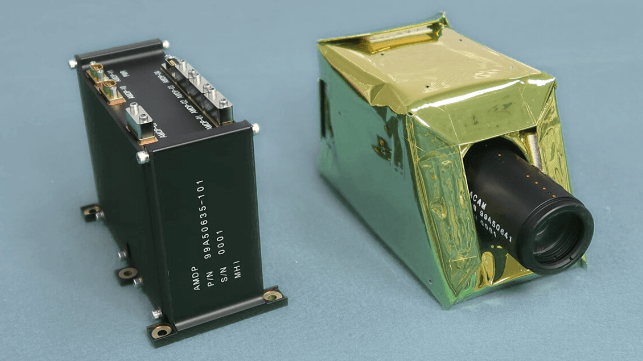Mitsubishi Develops AI System to Track "Dark Fleet" From Space

Maritime security analysts have plenty of work keeping up with ships that attempt to evade detection - enough work that specialty ship-tracking consultancies operate a brisk business selling hard-to-find vessel locations to energy traders, governments and researchers. That may soon be changing, according to Mitsubishi Heavy Industries. The Japanese industrial giant is launching a satellite-based surveillance system that uses AI to automatically detect and track evasive vessels.
Maritime stakeholders are familiar with the Automatic Identification System (AIS) and its widespread misuse by shadowy vessel operators. By turning off or falsifying its AIS signal, a vessel can evade scrutiny on the high seas, unless someone is watching with high-resolution satellite imaging.
Until now, the satellite surveillance process has been cumbersome and data-heavy. All the satellite imagery has to be sent to a ground station by downlink, and if a ground station is not in range, some of that data may get discarded. Once it is received it has to be analyzed, often by hand.
MHI says that it has found a way to speed up the system by using AI to analyze the images onboard the satellite itself, before they are sent anywhere. When its camera images the Earth’s surface, the MHI Artificial Intelligence Retraining In Space system (AIRIS) applies AI to detect suspect vessels in the imagery, then transmits only the data from the areas where those vessels are located. Everyday images of open water and innocent ships are never sent, saving more bandwidth to use for valuable information.
The objective is to identify suspicious activity more quickly so that responses and interventions can be initiated sooner. Initial applications will include IUU fishing, which costs the global economy more than $20 billion a year. The AI model aboard AIRIS can be retrained and updated as needed, making it better over time or adapting it to other use cases - for example, keeping an eye on misbehaving aircraft or vehicles, MHI said.

that matters most
Get the latest maritime news delivered to your inbox daily.
AIRIS is supported by the Japan Aerospace Exploration Agency (JAXA) and will be hosted as a payload aboard a Japanese demonstration satellite, RAISE-4, launching in 2025-6. The research satellite will carry a total of 15 components selected through an open tender process.
